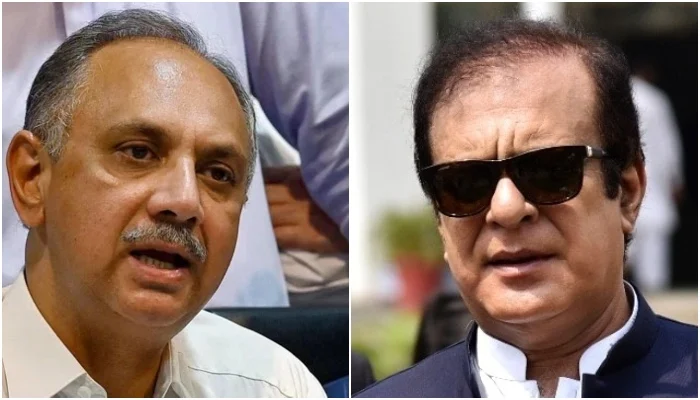In a significant development related to the May 9 incident, the Anti-Terrorism Court (ATC) has issued non-bailable arrest warrants for two prominent political figures, Omar Ayub and Shibli Faraz. Both former ministers, who are accused of involvement in the violent events that unfolded on May 9, are now at the center of a legal storm as the case continues to garner national attention.
The May 9 Incident and Its Aftermath
The May 9 event, which shocked Pakistan, was a violent attack on key national institutions, causing widespread chaos and raising serious concerns about political stability and security. The incident led to multiple arrests, with numerous political figures facing charges related to the violence and its aftermath. The case remains a focal point in Pakistan’s legal and political landscape.
The issuance of non-bailable arrest warrants for Omar Ayub, a former Minister for Energy, and Shibli Faraz, the former Minister for Information, signals the seriousness with which the authorities are treating the case. The two individuals are being accused of playing a role in orchestrating or contributing to the events of May 9, although the specifics of their involvement are still under investigation.
Legal Implications of Non-Bailable Warrants
Non-bailable arrest warrants are a serious legal measure, as they prevent the accused individuals from being granted bail and force their immediate arrest. The ATC’s decision to issue these warrants highlights the gravity of the charges and the commitment of the authorities to pursue justice in the case.
For both Omar Ayub and Shibli Faraz, the legal proceedings are now set to intensify. With arrest warrants in place, their legal teams will need to navigate a complex judicial process. The issuance of these warrants also indicates that the court believes there is enough evidence to proceed with further investigations and potentially bring formal charges against the two former ministers.
Political Impact and Reactions
The arrest warrants have sent shockwaves through Pakistan’s political sphere, where both Omar Ayub and Shibli Faraz were considered influential figures within the ruling party at the time of the May 9 incident. Their involvement in the case has raised concerns about the extent to which political figures might be implicated in the violence that occurred on that fateful day.
Political reactions to the arrest warrants have been mixed. Supporters of the former ministers argue that they are being unfairly targeted, while critics contend that the charges are justified given the gravity of the May 9 incident. As the case progresses, it is expected to have significant implications for the political landscape in Pakistan, particularly as it relates to accountability and justice for acts of violence committed during politically charged events.
Next Steps in the Legal Process
With the issuance of non-bailable arrest warrants, the next step in the legal process will likely involve the apprehension of Omar Ayub and Shibli Faraz. Once in custody, they will face trial proceedings in the ATC, where evidence will be presented, and both defendants will have the opportunity to defend themselves.
The ongoing investigations into the May 9 case will continue to gather attention, as more figures may be implicated, and further developments in the case could alter the political climate. Legal experts are closely watching the case to determine how it will unfold and whether it will set precedents for how similar cases are handled in the future.
Conclusion
The issuance of non-bailable arrest warrants for Omar Ayub and Shibli Faraz marks a key moment in the May 9 case and demonstrates the determination of the authorities to hold accountable those who contributed to the violence and unrest. As the legal proceedings continue, all eyes will be on the court’s decisions and how they impact both the political landscape and the broader judicial system in Pakistan.



Comments (0)
No comments yet. Be the first to comment!
Leave a Comment